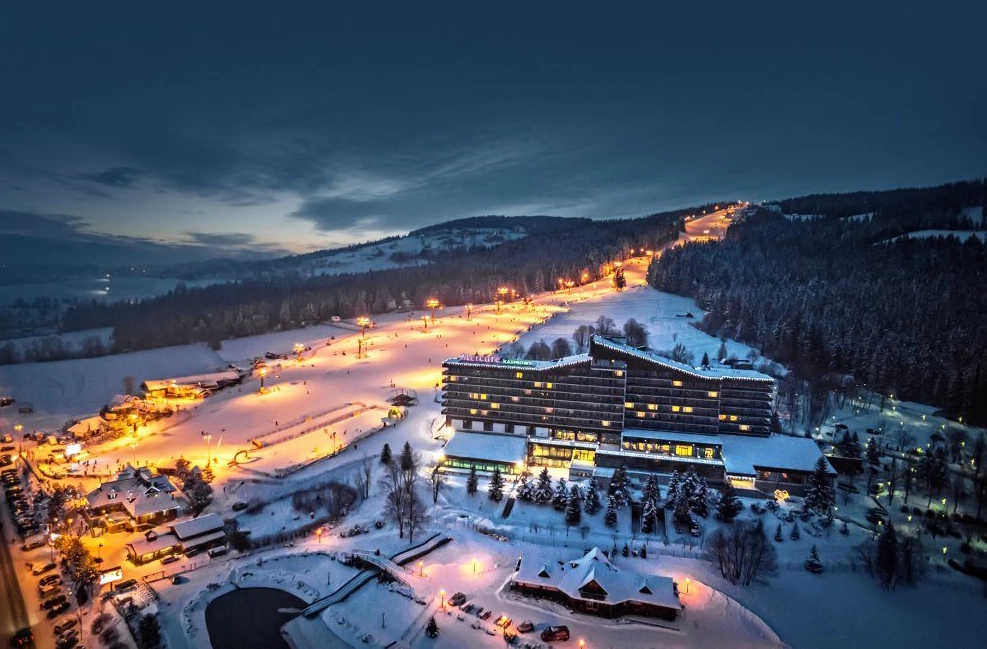If there was one just thing in all the former Eastern Bloc, it was the relative equality in terms of access to luxury. Sure, the poor were poor as they always have been, but in contrast to today’s relations, the privileged elite had far fewer occasions to indulge in excessive luxury. Speedy roadsters were far too conspicuous to fit into the image of a spartan Communist dignitary, and access to consumer goods was limited – not only by ideology but also by trade restrictions.
Hotel Kasprowy: Luxury in limited resources
However, there was an oasis in this world of limited resources. The hospitality industry focused on, among other things, attracting foreign tourists who could bring with them one of the things most in demand: hard currency. Besides, elites will always be elites, looking for ways to exercise their privileged status at least every now and then.
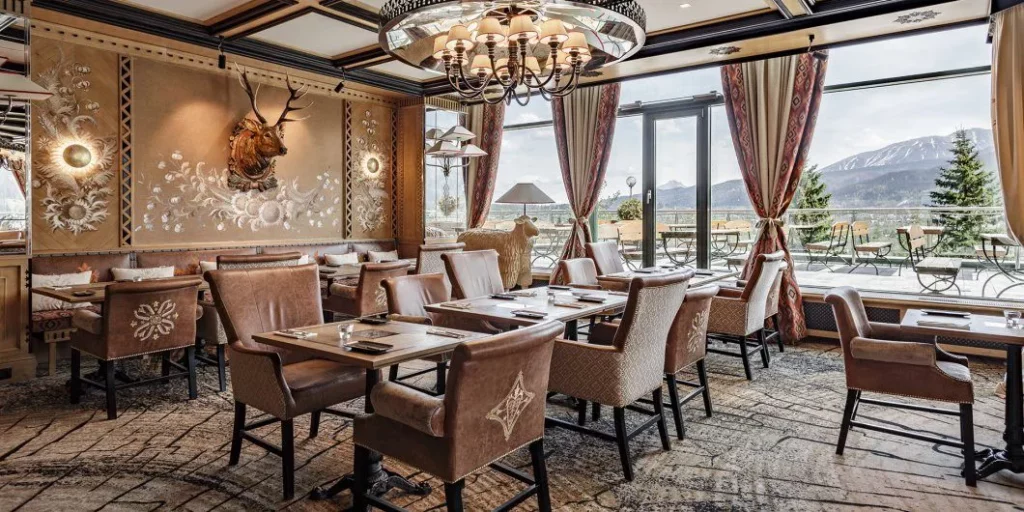
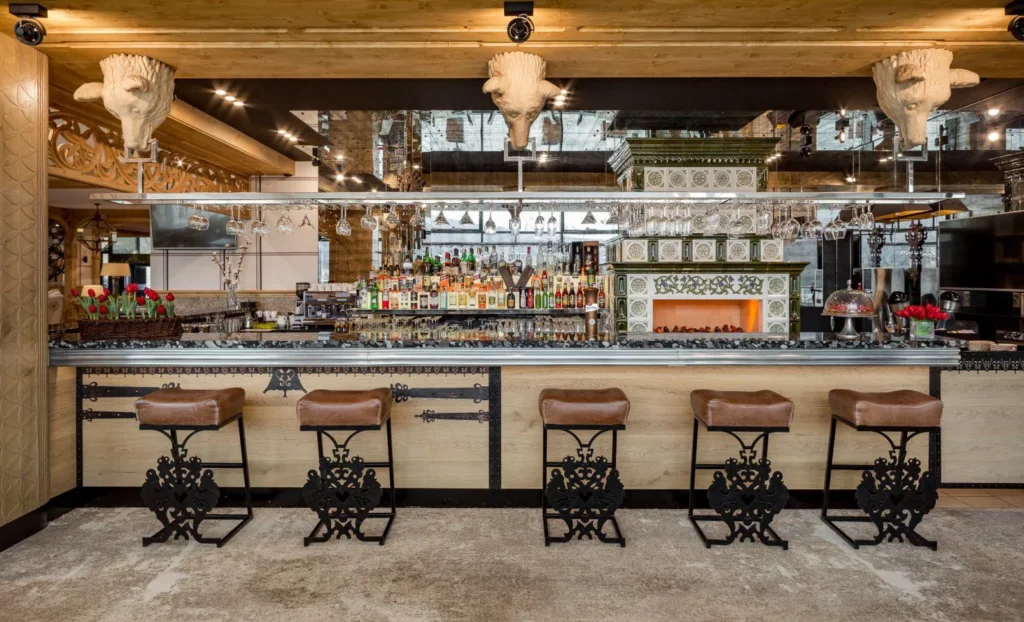
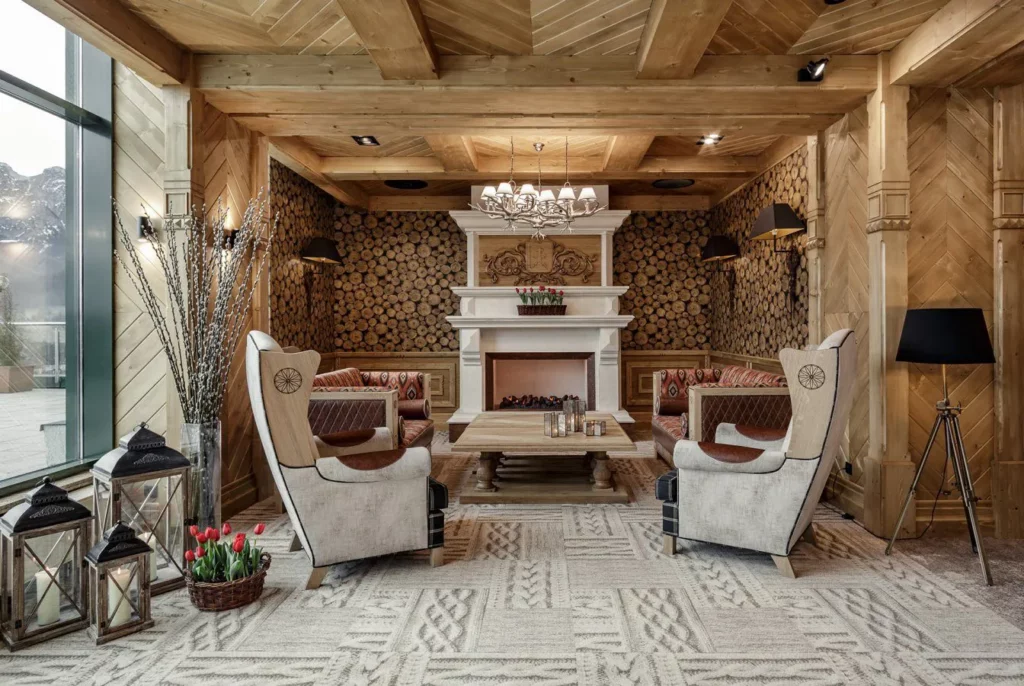
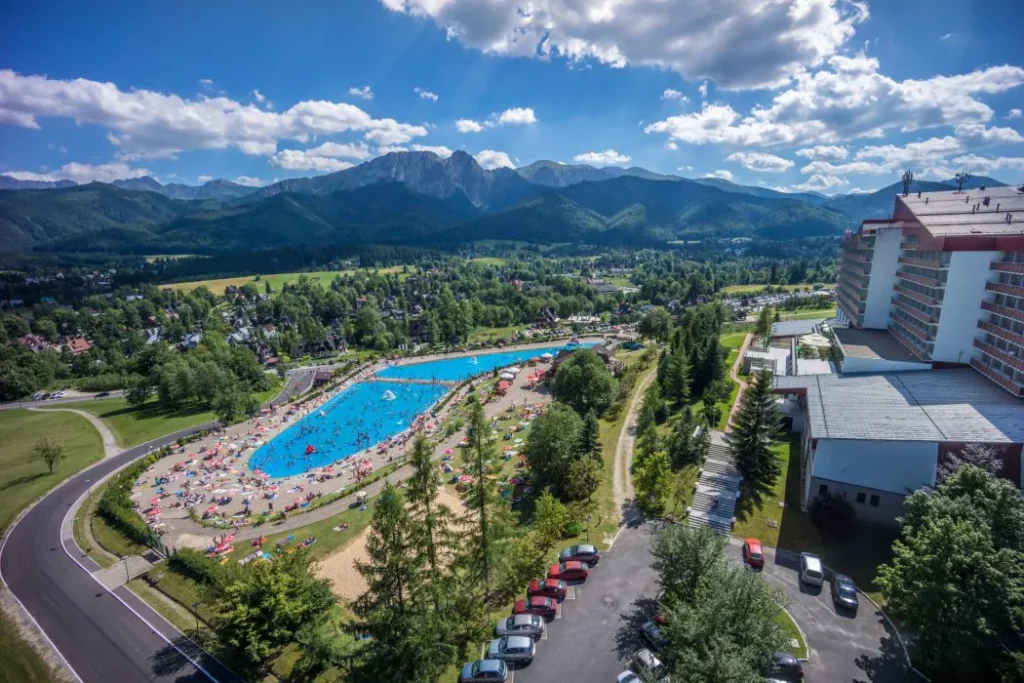
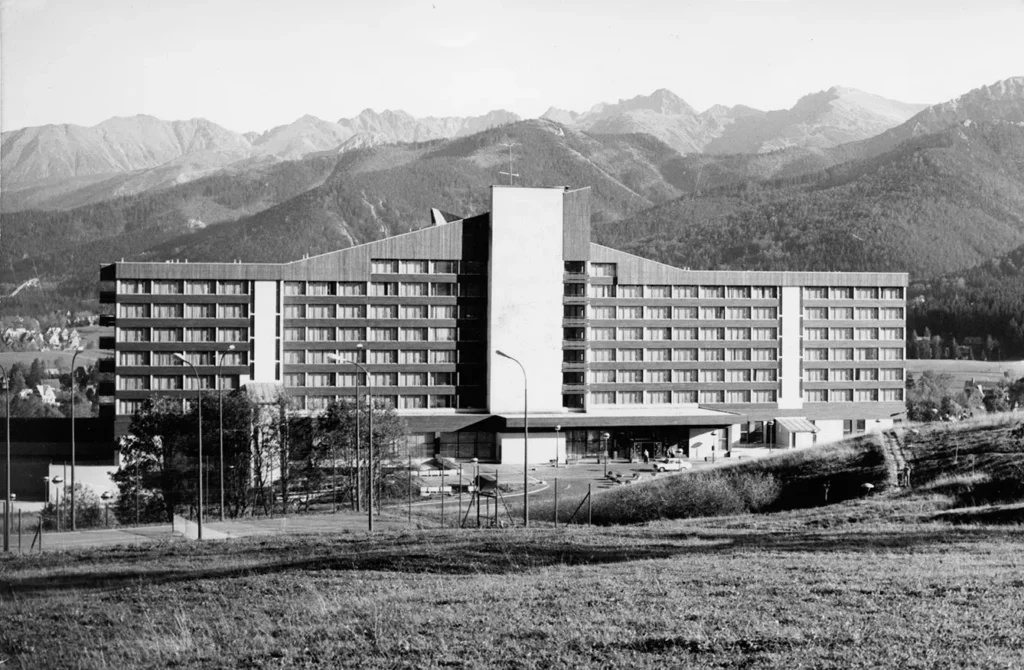
One of those oases was the Hotel Kasprowy, a modernist hotel built in 1974 in Zakopane, the “winter capital of Poland.” The town, with its picturesque heritage of prewar Polish culture, is the entry to the Polish side of Tatras, the highest and perhaps most magnificent mountain chain on the Polish-Slovakian (then Czechoslovakian) border.
Built by the Polish touristic monopoly Orbis, it set a record in building speed in Poland, ready for guests just a year after construction began. From the very beginning, its existence influenced the region of Podhale, built by Yugoslavian construction workers, many of whom later settled in the vicinity. And the record was set even though the Kasprowy was a hotel of unprecedented scale: with seven floors and three hundred double rooms, it remains among the most significant buildings around.
Its offer of amenities was also outsized. You could find a swimming pool and a bowling alley – both highly unusual in socialist hotels. The offer of restaurants and cafés was great, not to mention the shops – including the “Pewex” chain, which allowed Poles to buy restricted imported goods for US Dollars (if they could get some). Placing such shops inside the hotel increased its image as an island of luxury for the privileged in a sea of poverty.
The place to be and a punishment
Thanks to these luxuries, Hotel Kasprowy soon became the place for dignitaries, artists, and celebrities alike. Those who had access to similar luxuries in their country could still benefit from the magnificent location in the middle of the Tatra mountains combined with the lower prices compared to those in Western countries.
It is also said that the building of the Hotel Kasprowy was, for Zakopane, a form of punishment for… capitalism. Some two years after its opening, governmental reform showed that mercantile social relations ruined the dream of socialist abundance. While in Poland, the report said, socialist relations should be a frame for limited capitalist markets.
In Podhale, it was the other way around. There were many private factories for fur coats and other traditional leather souvenirs; moreover, the hospitality industry rested on tiny intimate inns rather than state-controlled hotels. And Hotel Kasprowy was supposed to change this relationship.
Whatever its genesis, Hotel Kasprowy soon became a place for indulgence. When Martial Law (or a military coup) broke out in Poland in 1981, dissident singer-songwriter Jacek Kaczmarski ironically noted that the “Kasprowy is cultural again,” alluding perhaps to the number of people forbidden from taking holidays.
Hotel Kasprowy in the nineties
In the nineties, when capitalism was no longer the younger brother of state socialism, Hotel Kasprowy was not enough to attract the elite. The deeply rooted memory of one of the most luxurious hotels in socialist Poland.
And rooted it was deep enough so that Polish National Opera director Mariusz Treliński, when setting the stage for the Polish opera “Halka,” decided on the 1970s hotel in the Polish mountainside. Originally depicting social – and personal – relations between a peasant girl and a nobleman, it was translated into feudal relations within the socialist entrepreneurship world order.
(*The official Opera’s statement denies the exact connection to Kasprowy and firmly underlines that the hotel on stage remains unnamed. But some critics, including one quoted by an important theater website e-teatr.pl, see the allusion.)
In altogether changed circumstances, Hotel Kasprowy remains an active hotel – now part of the Mercure hotel chain. It’s no longer exclusive in the proper sense of the word – instead, it remains synonymous with luxury, benefiting from its history.


